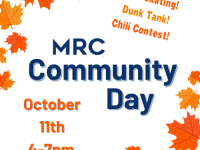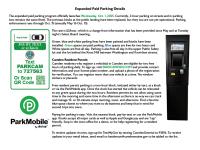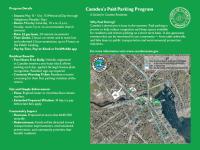Stay at Home for Food, Farms
Farmers’ markets and the delicious, healthy local food they bring have become a high spot of many people’s Maine summer. If limits on socializing make these friendly, community-centered events difficult this summer, it will be sad and even upsetting. But farmers’ markets aside, the impact of the corona-crisis doesn’t need to be negative for local farming and food. On the contrary, it could provide a big boost for the already vibrant and expanding local food movement. It’s vital that we in Midcoast Maine grab that opportunity.
Before the coronavirus showed up, the popularity of farmers’ markets was combining with red-hot restaurant and grocery story interest in local ingredients to give many farmers a simpler, more profitable alternative to the community supported agriculture (CSA) schemes that helped spur the revival in local agriculture. With CSAs, people pay in advance for “shares” in a farm’s seasonal output, allowing farmers to borrow less and assuring people get safely grown food. But it is time-consuming for farmers and doesn’t always give people exactly what they want.
Nonetheless, with the virus, consumer and farmer interest in such personalized ways of getting local produce onto peoples’ tables has exploded again. So much so that the state of Maine has published a list of farmers seeking to sell direct to households.
The reasons for this surge of interest in local food go way beyond concern about the viability of farmers’ markets. One important reason is many people’s sudden realization of how precarious our lengthy food supply chains are. Outbreaks of coronavirus are hitting huge meat processing plants that form a vital link in the extended agri-business chain, and food is having to be destroyed because of transport glitches. It’s hardly surprising that people sitting at home reading about such breakdowns see advantages in a simply arrangement with a farm just a few miles down the road.
Like so much about this bizarre moment, these shifts in attitude on farms and food, which appear unusual at first, are in fact building on well-established trends that need to be sped up and enlarged if this corona-crisis is to serve as a cautionary tale that saves us from a much bigger climate crisis down the line – rather than a dress rehearsal for much worse to come.
There are growing threats from all sides to the agri-business model that for decades has brought us cheap, if often inherently tasteless food at the price of wildlife and soil destruction, enormous fossil fuel consumption, and obesity and other health risks.
Here in the US, flooding and drought have both hit the Midwest corn and soybean belt over the last two years, even as the share price of Bayer, the Germany company that bought agribusiness king Monsanto in 2018, plummets in response to jury findings that Monsanto-produced Roundup (glyphosate) causes cancer, while its replacement herbicide, dicamba, “drifts” and kills plants in neighboring fields and orchards. Internationally, the African Swine Fever that has since 2018 killed over half of the pigs in China, the world’s largest pork producer and consumer, is spreading across borders. Sound familiar?
Many more examples could be found of the internal problems weakening global agribusiness. Then there’s the climate risk: The food supply system accounts for 15%-20% of all primary energy use in this country, by official calculations, with most of that energy coming from heavy carbon-emitting fossil fuels.
Contrast this to the spread of small-scale farming that is often organic and almost always better for land and animals than agribusiness. And it creates meaningful and often family-oriented livelihoods for many more people than the agribusiness model, in which a few people own most of the land and machines do most of the work, with jobs provided in large numbers only to low-wage transient workers at harvest time.
Maine has been doing better on the farming front than many states in recent years. First, Maine farms are attracting young people: The number of farmers under age 34 in the state tripled between 2007 and 2017, according to the latest Census of Agriculture released in April 2019 by the US Department of Agriculture (USDA). Small farms are proliferating, and direct sales by Maine farmers to customers surged by 53% between 2012 and 2017.
The message is loud and clear: If you care about your health and the health of the planet, eat local, both during this stay-at-home period and beyond. That goes for vegetables, fruit, meat and fish. You won’t be able to find everything you need locally, but you can find a lot. And it won’t be quite as cheap in all cases, but for most of us, it’s affordable – and it’s mportant.
United States
About this blog:
Tales from the Transition

I’m Sarah Miller, a semi-retired international energy and business journalist and editor, and now a Camden resident. Having spent a career learning about old energy, I’ve turned to new energy in recent years. In doing so, I’ve come to see how important fossil fuels and the way they work were to the structure of 19th and 20th Century economies and societies. I’ve also started to imagine what cleaner, more distributed energy forms could mean for the structure of 21st Century economies and societies. The climate crisis is frightening, but the energy and social transitions that accompany it can bring us a better world -- if communities like ours here on the Midcoast work in a bottom-up, “distributed” way to make it so. That’s what Tales from the Transition is all about.
I am active in the community through the Camden Energy and Sustainability Committee, the Camden Philosophical Society, the board of Bay Chamber Concerts and Music School, and the climate activist group Climate Matters Maine. I am a former president of the Camden Conference. The views expressed in this blog, however, are strictly my own.




















